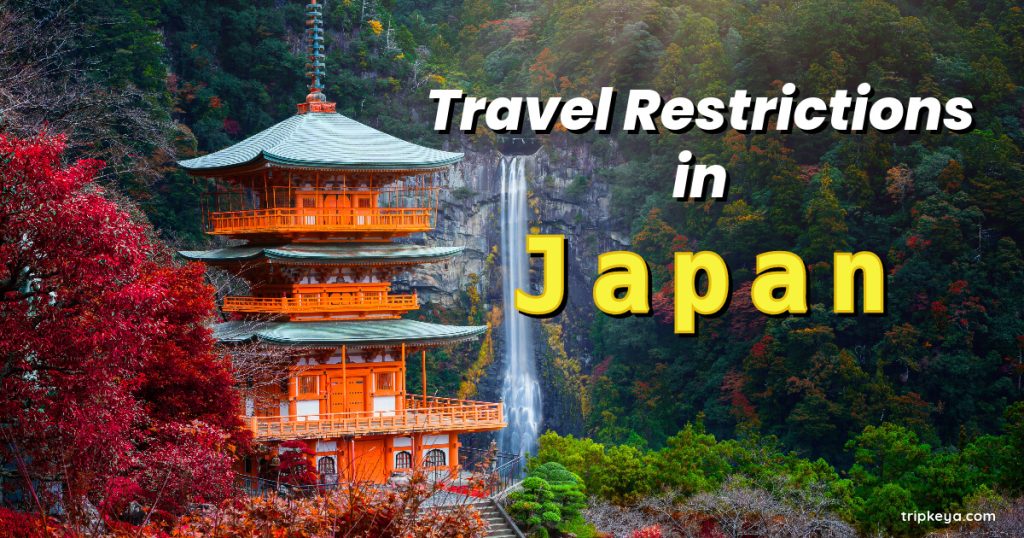Every country in the world has its own laws, which may be similar to your country. If you think that in the country where you are going, you can do everything that you can do in your own country, then you will definitely be wrong. So, it is good to know about the laws and restrictions of the place where you are going. Japan is also a country where you will need to know about some restrictions along with having fun. So, in this article, I have compiled common but the most important travel restrictions for Japan that you should know.
Japan Travel Restrictions – Everything You Need to Know
Table of Contents
- Japan Travel Restrictions – Everything You Need to Know
- Smoking Regulations
- No Tatoos in Onsens
- Garbage Separation
- Noise Etiquette
- Travel Photography Restrictions in Japan
- Street Vending
- J-Walking
- Public Nudity
- Drone Regulation in Japan
- Wildlife Interactions
- Public Intoxication
- Ski Resorts Off-Limit Areas
- Elevator Silence
- Topless Sunbathing
- Japan Travel Restrictions in 2023
- Conclusion
Amidst these unprecedented times, understanding the nuances of Japan’s travel restrictions is key to unlocking a safe and immersive journey. As you delve deeper into our guide, you’ll gain insights into the evolving landscape of regulations, from COVID-19 testing requirements to visa updates. Embrace the spirit of flexibility and preparation as you plan your odyssey through this captivating country. Our mission is to equip you with not only the information you need but also the inspiration to weave your own narrative within the confines of these guidelines. Japan remains a canvas of wonders, and with every brushstroke of awareness, your adventure becomes more vibrant and meaningful. So, Let’s see what common travel restrictions in Japan you should know about.
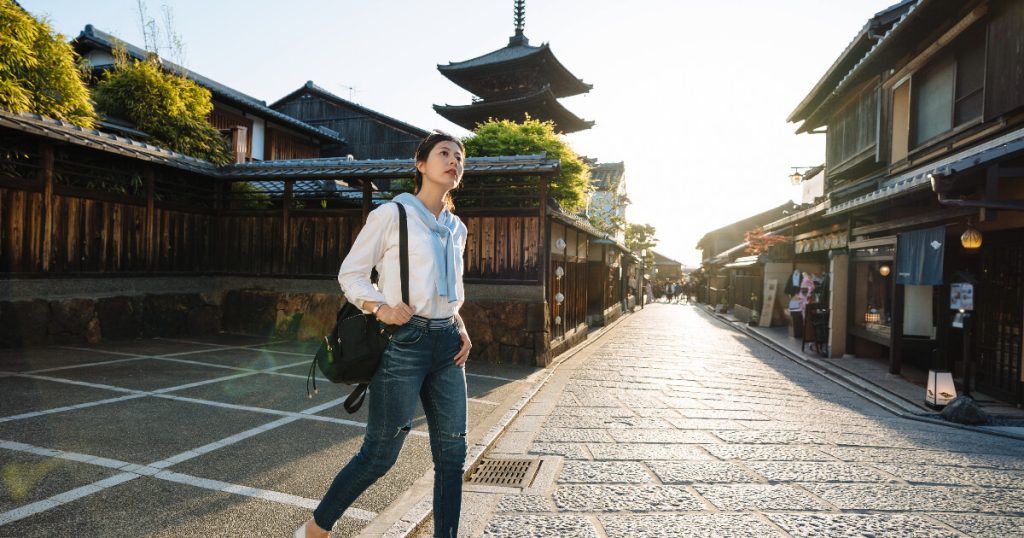
Photo via: Adobe Stocks
Smoking Regulations
Smoking regulations stand as a significant aspect of Japan’s travel landscape. The country has embraced stringent rules to curtail public smoking, with designated smoking zones prevalent. Strolling and puffing along streets is discouraged, promoting cleaner air and public health. Popular tourist spots and transport hubs often boast segregated smoking areas, enforcing the no-smoking policy elsewhere. It’s imperative for travelers to acquaint themselves with these norms to avoid fines and maintain cultural respect. Adhering to Japan’s anti-smoking stance not only enhances the overall experience but also showcases reverence for the environment and local customs.
No Tatoos in Onsens
The cultural prohibition against tattoos in onsens in Japan dates back to the Edo era (1603–1868). Tattoos were then connected with criminals and yakuza members, Japan’s organized crime group. Even now, many Japanese still associate tattoos with danger or criminality because of this relationship.
Because of this, many onsen in Japan have a rule that forbids visitors with tattoos. The tight enforcement of this rule is not always the case. But certain onsen may accept visitors with modest or covert tattoos. To ensure that you are welcome, it is important to contact the onsen in advance of your visit.
There are a few options available to you if you have tattoos and want to experience onsen in Japan. You might start by looking for an onsen that welcomes tattoos especially. In Japan, there are an increasing number of onsen that accept tattoos, particularly in populous areas like Tokyo and Kyoto.
The second option is to try to cover your tattoos. If tattoos are covered up with bandages or clothes, some onsen may let tattooed visitors inside. It’s vital to keep in mind that not all onsen will permit this, so it’s wise to inquire before visiting.
The last option is to look for an onsen with private bathrooms. You won’t have to be concerned about other people seeing your tattoos while enjoying the onsen in this way. Here are some tips for finding a tattoo-friendly onsen in Japan:
- Ask your hotel or travel agency about a tattoo-friendly onsen.
- Do some internet research. Many websites and blogs compile lists of tattoo-friendly onsen in Japan.
- There are certain onsen that feature signs that read “Tattoo OK” or “Tattoo Welcome.”
Garbage Separation
You will be wrong If you think that this is one of the common travel restrictions in Japan. Because Japan is quite strict and serious about garbage separation. There are several garbage types that need to be disposed of in various ways. And you should also know that breaking the rules is punishable by steep fines. This is due to Japan’s commitment to recycling and trash reduction as well as its extremely limited land resources.
Here are the different types of garbage and how they should be disposed of:
- Burnable garbage: This includes food scraps, paper, cardboard, and wood. It should be placed in green bags.
- Recyclables: This includes plastic, metal, glass, and aluminum cans. It should be placed in blue bags.
- Incombustible garbage: This includes appliances, furniture, and other large items. It should be taken to a designated disposal site.
- Construction waste: This includes debris from construction and demolition. It should also be taken to a designated disposal site.
- Hazardous waste: This includes batteries, fluorescent light bulbs, and other toxic materials. It should be disposed of at a special hazardous waste facility.
So, as a traveler, it will be your responsibility to dispose of your garbage properly when you are in Japan.
Noise Etiquette
In Japan, noise etiquette is vital, emphasizing respect and peaceful coexistence among communities. Maintaining this etiquette as a traveler is essential for a harmonious experience.
In Japan, speaking softly in public spaces, like trains and buses, is customary. Avoid speaking on the phone in these settings, and if necessary, do so in designated areas. When using headphones or earbuds, keep the volume at a level where others can’t hear your music or conversations. In hotels and traditional ryokans, where paper-thin walls are common, be especially mindful of noise levels, including TV and conversation volume.
Additionally, when walking through residential areas or visiting temples and shrines, try to keep noise to a minimum. People highly value silence, and they may see boisterous behavior as disrespectful. By embracing these practices, travelers can show appreciation for Japan’s rich cultural heritage and demonstrate respect for its people.
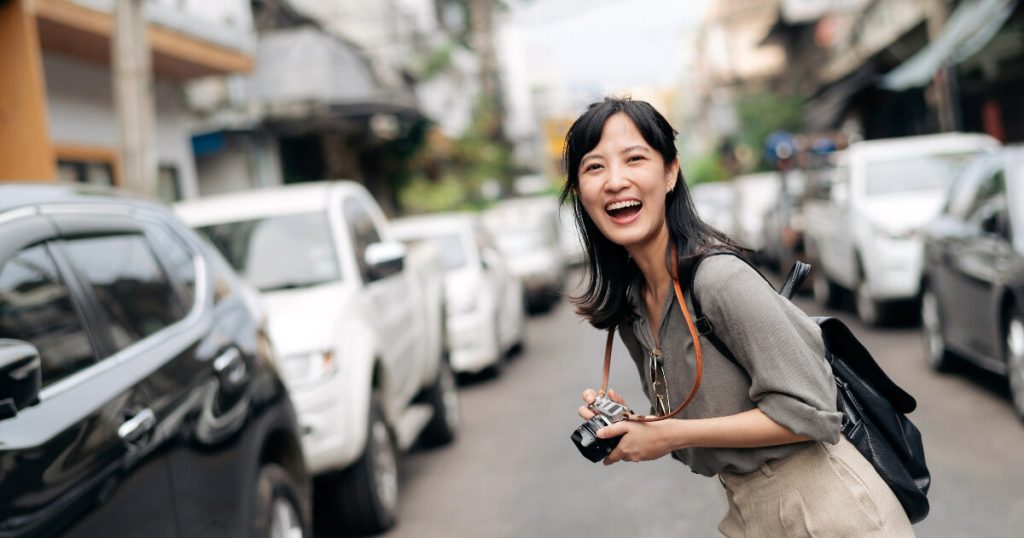
Photo via: Adobe Stocks
Travel Photography Restrictions in Japan
Photography restrictions in Japan can be quite stringent in certain places, particularly at cultural and religious sites. Maintaining respect for these rules as a traveler is essential to upholding local customs and preserving the sanctity of these locations.
When visiting temples, shrines, or museums, it’s crucial to abide by posted signs and instructions regarding photography. Authorities often prohibit taking photos inside these places, and ignoring these rules can disrupt the serene atmosphere and show disrespect for the religious or historical significance of the site. Additionally, when photographing people, always seek their permission first, as it’s a courteous gesture and helps maintain positive interactions with locals. By being mindful of photography restrictions, travelers can enjoy a culturally enriching experience while demonstrating respect for Japan’s heritage and its people.
Street Vending
I know this is one of the unique travel restrictions in Japan, But it is. Street vending in Japan is subject to strict regulations aimed at maintaining public order and cleanliness. As a traveler, it’s important to be aware of these rules to ensure a positive and respectful experience.
While exploring Japanese streets, it’s crucial to refrain from eating or drinking while walking. Instead, look for designated areas, such as benches or public seating, to enjoy your food or beverages. This practice not only adheres to local customs but also helps keep the streets clean and orderly. Furthermore, avoid disposing of trash on the streets; carry it with you until you find an appropriate garbage bin. By following these guidelines, travelers can seamlessly blend into the local environment, contributing to the overall harmony and cleanliness of Japan’s public spaces.
J-Walking
J-walking, or crossing the street outside designated crosswalks, is discouraged and regulated in Japan to ensure pedestrian safety and maintain order on the roads. As a traveler, adhering to these regulations is essential for both your safety and to demonstrate respect for local traffic norms.
When navigating Japanese streets, always use designated pedestrian crossings and wait for the signal to cross. J-walking not only increases the risk of accidents but also disrupts the orderly flow of traffic. It’s important to note that pedestrians are expected to obey traffic rules as rigorously as drivers. By following these guidelines and respecting traffic signals, travelers can contribute to the overall safety and efficiency of Japan’s roadways while enjoying a secure and hassle-free experience.
Public Nudity
Public nudity in Japan is generally not accepted or legal. It’s vital for travelers to understand and respect this aspect of Japanese culture to ensure a harmonious and culturally sensitive experience.
In places like onsen (hot spring baths) and sento (public bathhouses), public nudity is the norm. However, travelers should follow the established customs, which include thoroughly washing and rinsing oneself before entering the communal baths. While tattoos are often associated with organized crime and may result in restricted access to certain establishments, travelers with tattoos should inquire about specific policies at each onsen or sento they wish to visit.
By respecting these guidelines and practices, travelers can fully enjoy the traditional Japanese bathing experience and demonstrate cultural sensitivity.
Drone Regulation in Japan
Japan has stringent drone regulations to ensure safety and privacy. As a responsible traveler, it’s crucial to be aware of and adhere to these rules to avoid legal issues and promote a safe environment.
Travelers planning to use drones in Japan should obtain the necessary permits and permissions before flying. Flying drones in urban areas, near airports, or over crowds without permission is strictly regulated. Ensure you are aware of the specific drone laws in the area you plan to visit, as regulations may vary by location. Always fly your drone within the allowed altitude and adhere to no-fly zones. Being informed and respecting these regulations not only protects your own interests but also demonstrates respect for the privacy and safety of the Japanese people and their environment.
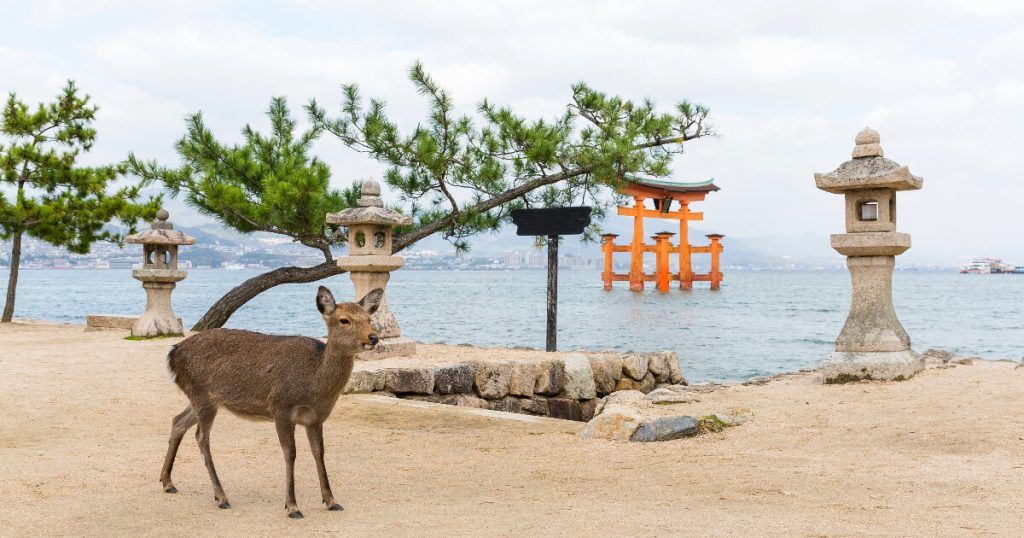
Photo via: Adobe Stocks
Wildlife Interactions
Wildlife interactions in Japan should be approached with care and respect for the environment. As a responsible traveler, it’s essential to be aware of the guidelines and take steps to maintain harmonious interactions with local wildlife.
When encountering wildlife, whether on land or in marine environments, it’s vital to maintain a safe distance and avoid feeding or disturbing the animals. Feeding wild animals can disrupt their natural behavior and diet, potentially causing harm to both the animals and the ecosystem.
Additionally, some species may carry diseases that can be transmitted to humans through close contact. Travelers should observe wildlife from a distance, refrain from attempting to touch or feed them and follow any specific guidelines or restrictions provided by local authorities or tour operators.
By respecting these principles, travelers can help preserve Japan’s diverse and unique natural habitats and ensure a positive experience for themselves and future generations of visitors.
Public Intoxication
Public intoxication can lead to discomfort and potential legal issues when traveling. It’s essential for travelers to maintain self-control and responsible alcohol consumption to ensure a positive experience.
When enjoying alcoholic beverages in public places or social settings, travelers should be mindful of their limits and pace themselves accordingly. Excessive drinking not only puts your safety at risk but also disrupts the peace and comfort of those around you. It’s crucial to know the local laws regarding public alcohol consumption, as they can vary from one place to another. In some areas, public drinking may be strictly regulated or prohibited. By being aware of your alcohol intake, respecting local regulations, and showing consideration for others, travelers can avoid unnecessary problems and enjoy a more enjoyable and respectful journey.
Ski Resorts Off-Limit Areas
Ski resorts in Japan, like those in many other countries, often have off-limits areas, which are sections of the mountain that are restricted or prohibited for various reasons. These off-limits areas are typically marked by signs or barriers and are meant to ensure the safety of skiers and snowboarders as well as protect the environment. As responsible travelers, it’s crucial to respect these restrictions to ensure both personal safety and the preservation of the natural surroundings.
When skiing or snowboarding, always adhere to marked trails and obey any signage indicating off-limits areas. Venturing into these restricted zones can not only lead to accidents but also damage the delicate ecosystems that are often found in mountainous regions. Additionally, it’s advisable to check with resort staff or guides for the latest information on safe skiing areas and any potential hazards. By showing respect for these guidelines, travelers can enjoy a safer and more environmentally conscious skiing experience while maintaining the integrity of the natural landscapes they explore.
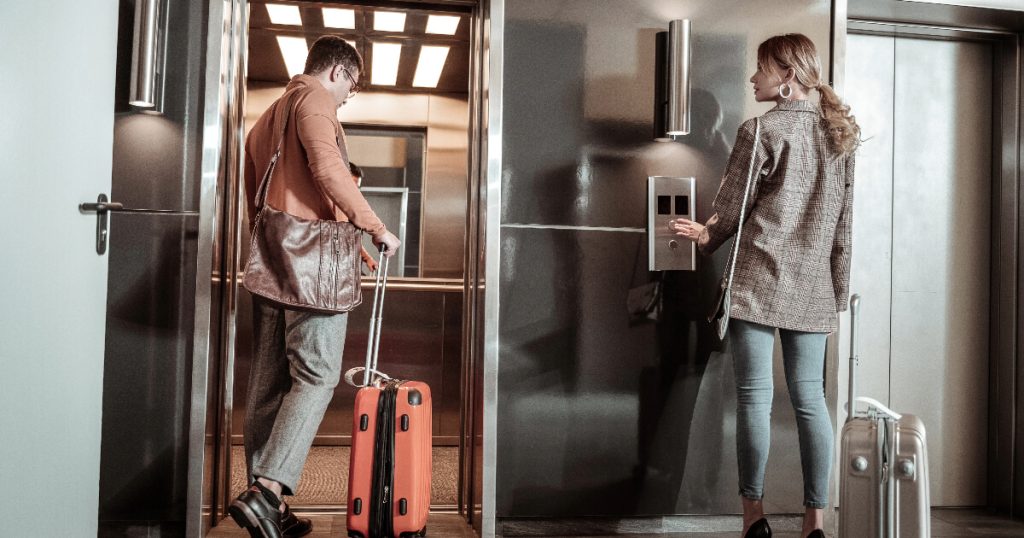
Photo via: Adobe Stocks
Elevator Silence
Elevator silence is an essential aspect of Japanese culture and etiquette. As a traveler, maintaining this practice is a sign of respect for the peaceful atmosphere and consideration for others.
When entering elevators in Japan, it’s customary to keep conversations hushed or even refrain from talking altogether. This practice ensures a serene and comfortable environment for all passengers. Additionally, when in elevators with strangers, it’s polite to avoid making loud noises, playing music, or engaging in boisterous behavior. Observing elevator silence may not be strictly enforced, but it reflects cultural sensitivity and respect for local customs.
Topless Sunbathing
Topless sunbathing is generally not accepted in Japan. Travelers should be mindful of this cultural norm to ensure a respectful and harmonious experience.
On public beaches in Japan, it’s important to adhere to local customs and regulations, which typically require swimwear that covers the chest for both men and women. While attitudes toward modesty and nudity vary around the world, embracing the local customs is a sign of respect for the culture you are visiting. By wearing appropriate swimwear and maintaining modesty on Japanese beaches, travelers can avoid causing discomfort or drawing unnecessary attention, ensuring a more pleasant and culturally sensitive beach experience.
Japan Travel Restrictions in 2023
Here are some important travel restrictions in Japan if you are planning to visit in 2023.
COVID-19 Restrictions in Japan:
- Testing: Travelers are no longer required to show proof of a negative COVID-19 test taken within 72 hours of departure. However, the Japanese government may still require testing at the airport upon arrival, or at random intervals during your stay.
- Vaccination: Travelers are no longer required to show proof of vaccination. However, the Japanese government recommends that all travelers be vaccinated against COVID-19.
- Quarantine: Travelers are no longer required to quarantine upon arrival in Japan. However, the Japanese government may still require quarantine for travelers who test positive for COVID-19 upon arrival.
The Japanese government can change these regulations at any time, so it is always wise to verify the most recent information before departing. On the website of the Japanese government, you may obtain the most recent information: https://www.mofa.go.jp
Things to keep in mind when traveling to Japan during the COVID-19 pandemic:
- The COVID-19 situation in Japan is constantly evolving, so it is important to stay up-to-date on the latest news and regulations.
- The Japanese government may require travelers to provide their contact information upon arrival.
- Some businesses, places, and attractions may still require masks or other COVID-19 precautions.
Visa Requirement in Japan
- To enter Japan, most nationals must have a visa. Check with the Japanese embassy or consulate in your country well before your trip as the visa requirements may based on your nationality.
- If you are from the USA, Canada, Australia, the UK, Germany, or Singapore, you do not need a Visa to enter Japan. But if you want to double-check or verify your country, Visit mofa.go.jp
- You can apply for a visa at the Japanese embassy or consulate in your nation if you require one. It is crucial to verify with the embassy or consulate for precise criteria as the application procedure may differ.
- A current photograph, a completed visa application form, and a current passport must all be presented. Additional documentation such as a letter of invitation from a Japanese national or resident as well as confirmation of your onward travel and financial support may be required.
- Applying for a visa might take a few weeks, so it’s important to do so well in advance of your trip.
Conclusion
In the land of the rising sun, where tradition and modernity converge, understanding and respecting Japan’s travel restrictions is key to a truly immersive and respectful journey.
By wholeheartedly adopting these travel restrictions in Japan, travelers secure their well-being, while also embodying cultural respect, fostering Japan’s rich heritage. As you journey through this captivating nation, remember that by adhering to these principles, you’re not just exploring Japan; you’re actively becoming a part of its tapestry.
Hey there! I’m Kartik. I am a finance professional and a travel and lifestyle blogger. I am vegetarian, but I love adventuring food. Jeric and I work together to deliver high-quality content for you. Adventure the fun!

